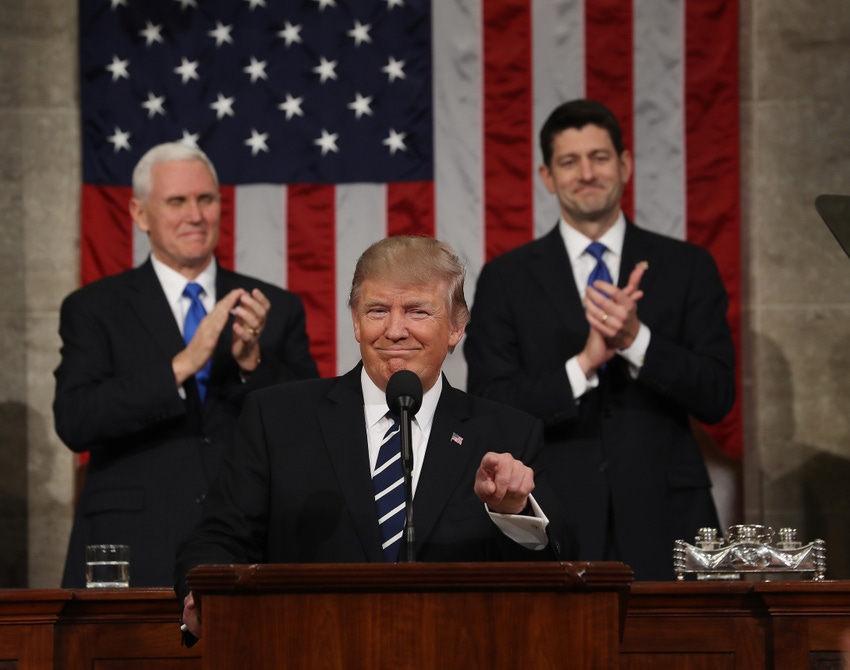Trump opens door for immigration reform
Agricultural groups looking for reform hopeful there is movement by late spring or early summer to find workable solutions for establishing a legal workforce.
3 Min Read

U.S. Vice President Mike Pence (left) and speaker of the House Paul Ryan (right) applaud as U.S. President Donald J. Trump (center) arrives to deliver his first address to a joint session of the U.S. Congress on Feb. 28, 2017, in the House chamber of the U.S. Capitol in Washington, D.C.Jim Lo Scalzo/Pool/Getty Images News
About the Author(s)
Subscribe to Our Newsletters
Feedstuffs is the news source for animal agriculture
You May Also Like




.png?width=300&auto=webp&quality=80&disable=upscale)
